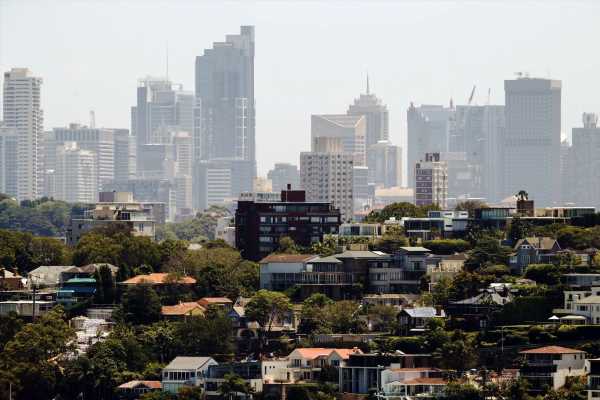Australian home prices rose for a third straight month in December, capping a wild year in which prices dipped during the first Covid-19 outbreak, before rebounding strongly as the economy reopened.
House values in major cities rose 0.9% last month, CoreLogic Inc. data released Monday showed. For the year, prices gained 2%, defying concern home values would plunge after coronavirus lockdowns pushed Australia into its first recession in almost three decades.
Instead, Australia joined countries fromNew Zealand to theU.K. and theU.S. where property markets have surged during the pandemic, as record low interest rates fuel demand, pushing buyers to compete for a scarce supply of listings. The desire for more spacious houses as people worked from home has also buoyed prices.
“Record-low interest rates played a key role in supporting housing market activity, along with a spectacular rise in consumer confidence as Covid-related restrictions were lifted and forecasts for economic conditions turned out to beoverly pessimistic,” said Tim Lawless, head of research at CoreLogic. “Containing the spread of the virus has been critical to Australia’s economic and housing market resilience.”
The ability to work remotely also boosted property markets outside the big cities. Home prices in regional areas jumped 6.9% in 2020 — more than three times the increase in capital city prices.
“As remote-working opportunities became more prevalent and demand for lifestyle properties became more popular, regional areas of Australia saw housing market conditions surge,” Lawless said. “Regional housing markets
had generally underperformed relative to the capital city regions over the past decade, but 2020 saw regional housing values surge as demand outweighed supply.”
Read more: People Fleeing Big Cities Risk Overwhelming Small Towns
While the outlook for housing prices this year is looking positive, “clear and present risks” remain, Lawless said.
Sydney and Melbourne are battling new Covidoutbreaks, and new restrictions would set back the economic recovery and have a negative impact on home prices, Lawless said. Closed international borders are “another wildcard,” with Melbourne and Sydney most impacted by a drop in immigration.
Source: Read Full Article
